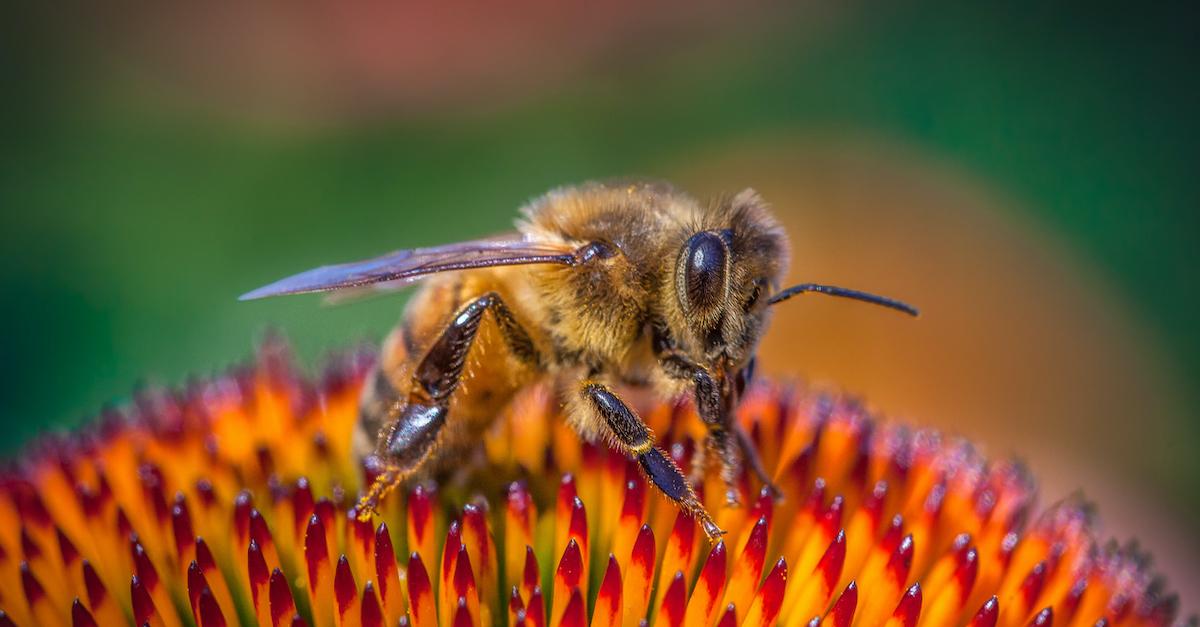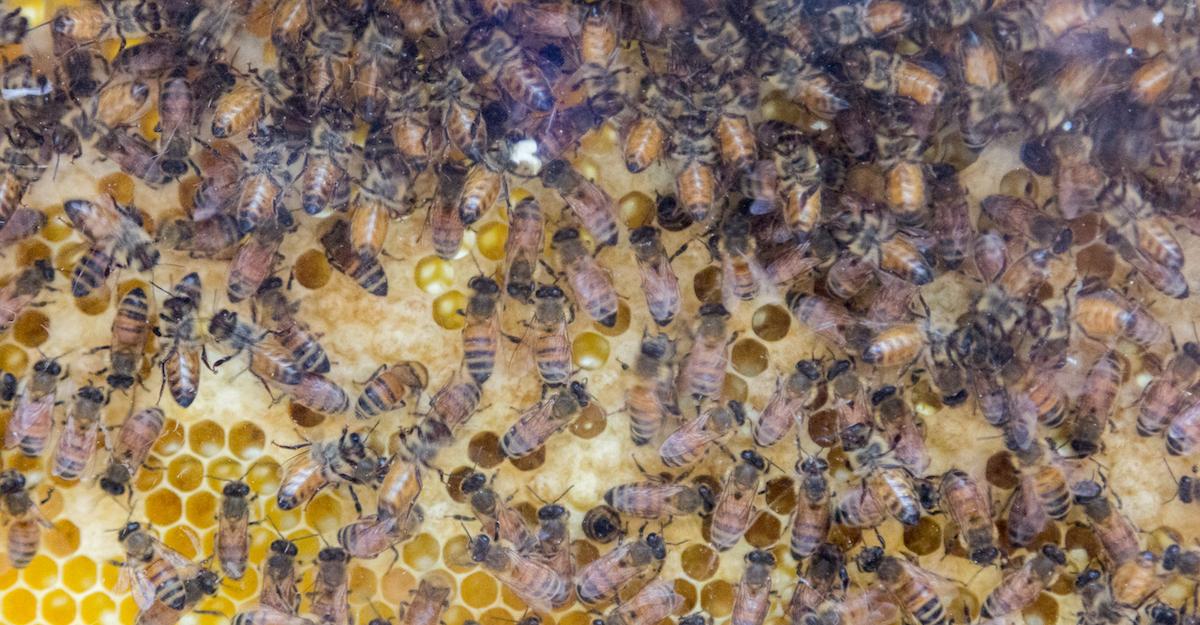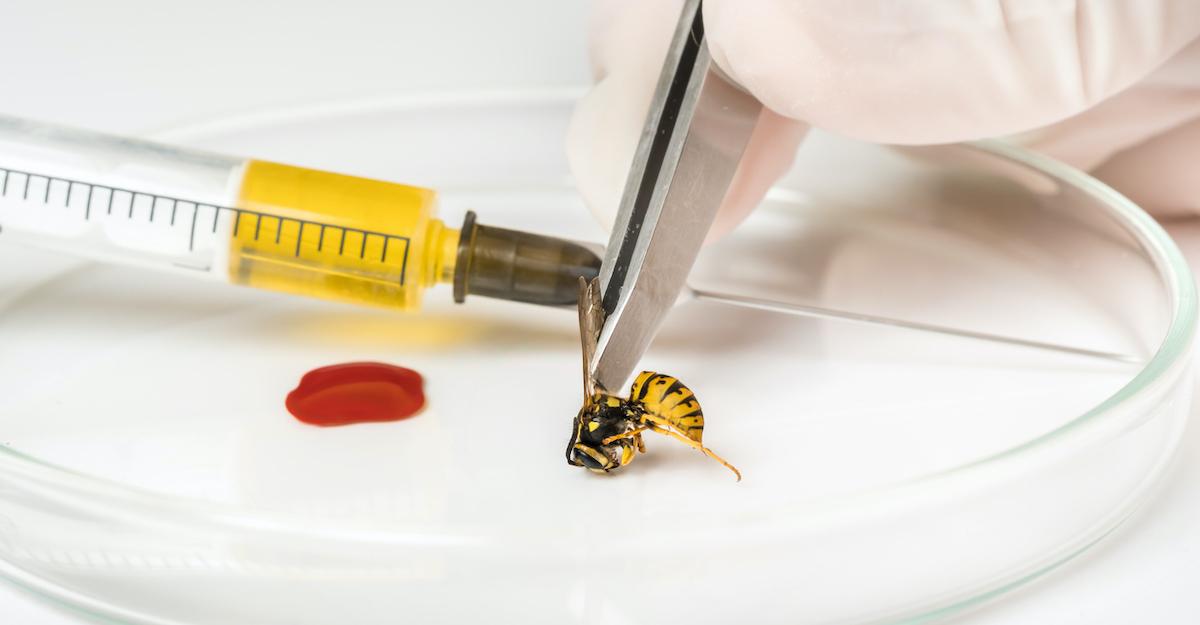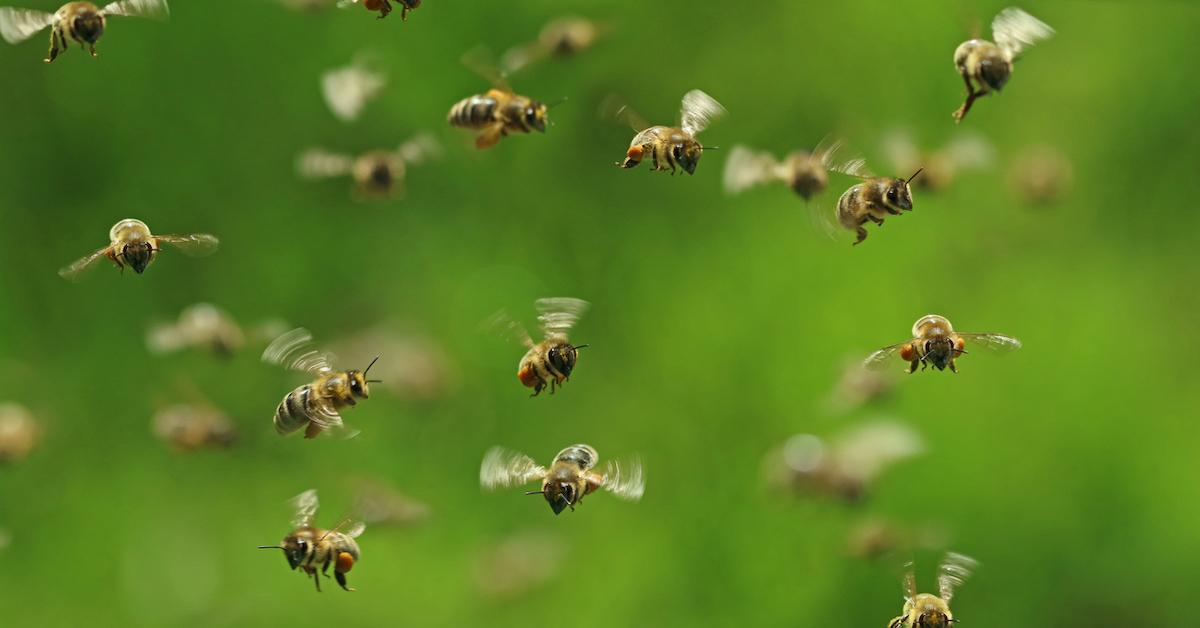Need Another Reason Why Bees Are Amazing? Their Venom Can Fight off Breast Cancer
Updated Sept. 3 2020, 3:39 p.m. ET

While the livelihood of honeybees largely affects planet earth's food supply, the beloved bugs can also apparently use their venom to combat aggressive breast cancer cells. That's right — a new study to come out of Australia's Harry Perkins' Institute of Medical Research says their venom can actually take on (and defeat!) even the toughest of breast cancer cells.
"We tested a very small, positively charged peptide in honeybee venom called melittin which we could reproduce synthetically, Dr. Ciara Duffy from Harry Perkins' Institute explained. "We found that the synthetic product mirrored the majority of the anti-cancer effects of honeybee venom." That being said, to say, we're beyond intrigued.

How does honeybee venom take on cancer? Here's what scientists found:
While Dr. Duffy was working on earning her PhD, she conducted an experiment on how honeybee venom — which can be synthetically produced in the form of melittin — could combat breast cancer, and her findings were incredible. According to a press release, she knocked out the bees using carbon dioxide, and found that when bee venom and melittin was tested on breast cancer cells, they suppressed the growth and killed the cell by entering the plasma membrane, and deadly forming holes.
This isn't the first time scientists have found bee venom to be a deadly match against cancerous cells. According to EcoWatch, bee venom has been used to kill tumors in plants since 1950, and past studies have shown it can take on other types of cancer such as melanoma. However, Duffy explained this was the fist time that honeybee venom had been tested against every type of breast cancer cell, in addition to non-cancerous breast cells, and we're certainly hoping these findings are put to use.
Based on the findings, per BBC News, bee venom could theoretically be paired with existing chemotherapies, however, there is more research to be done, as killing cancer in a lab differs from treating it in humans.
"It's very early days," Garvan Institute of Medical Research's associate professor Alex Swarbrick said. "Many compounds can kill a breast cancer cell in a dish or in a mouse. But there's a long way to go from those discoveries to something that can change clinical practice."

With that, it's important that we continue saving the bees.
As you've probably heard, the bee population is dwindling. In fact, between 1947 and 2008, the honeybee population has decreased by almost 60 percent, and apparently, the decline is largely due to — you guessed it — the climate crisis. Only a few of the contributing factors this wildlife crisis include overuse of pesticides, fertilizers, parasites, deforestation, and habitat destruction, which means we need to make some serious changes.
Many believe we can help save the bee population by simply reducing and altering potentially harmful farming practices that could potentially affect the bee population. From limiting the use of fertilizers, to using all-natural pesticides, there are so many ways we can help save the bees.

What did we do to deserve honeybees? These glorious creatures were already a planet earth staple for supplying us with food to eat, and now, science has officially proven them to be cancer-fighting warriors. Needless to say, we're forever grateful for their presence on planet earth.